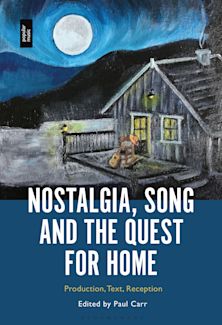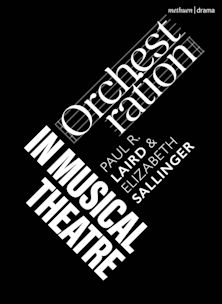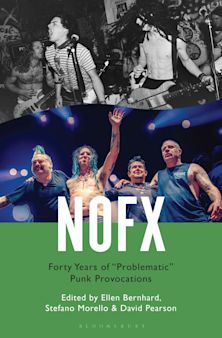Political Dreams and Musical Themes in the 1848–1922 Formation of Czechoslovakia
Interaction of National and Global Forces
Political Dreams and Musical Themes in the 1848–1922 Formation of Czechoslovakia
Interaction of National and Global Forces
This product is usually dispatched within 1 week
- Delivery and returns info
-
Free US delivery on orders $35 or over
Description
Political Dreams and Musical Themes in the 1848–1922 Formation of Czechoslovakia: Interaction of National and Global Forces characterizes the 1918–22 formation of Czechoslovakia as a consequence of political and musical expressions. Nationalist expressions and formations were striking after the 1848 Revolution. The authors explore how the music of Smetana, Janácek, and Dvorák inspired people with reminders about the important achievements of past Bohemian leaders. Under the control of the Vienna-based Habsburg Empire, Czech leaders also achieved more political representation in both Habsburg and Bohemian legislatures, and Slovaks made some national progress in at least asserting their demands to Budapest and its controlling Magyar Empire. During the early twentieth century, there was additional pressure to link up these nationalist movements in both music and politics with regional “modernist” approaches that were increasingly popular in other parts of Europe. The outbreak of World War I in 1914 opened up opportunities, such as joint participation in the Czechoslovak Legion, for the two key ethnic groups to forge a Czechoslovak state. Independence took place, with considerable western support, on October 28, 1918, and the commemorative concert two days later of compositions by Josef Suk put the final stamp on a considerable achievement that bore the hallmarks of globalism as well as nationalism.
Table of Contents
Introduction
Chapter One: Appearance of Czechoslovakia on the Global Stage in 1918: Realization of Nationalist Political and Musical Dreams
Chapter Two: The Revolution of 1848 and the Intensification of Nationalism Sentiments in Politics and Music, 1848-1881
Chapter Three: Emergence of a Global Framework: New Directions in Politics and New Horizons in Music, 1881-1901
Chapter Four: Pressures from the Outside European World and the Czech Response in Politics and Music, 1901-1914
Chapter Five: The War Years: Divided Political Loyalties and War Themes in Music, 1914-1918
Chapter Six: New Directions for Czechoslovakia: Nationally Rooted Musical Commemoration of the War and Globally Inspired New Political Architecture, 1918-1922
Final Conclusion
References
Index
About the Authors
Product details
| Published | Oct 30 2023 |
|---|---|
| Format | Hardback |
| Edition | 1st |
| Extent | 206 |
| ISBN | 9781666925197 |
| Imprint | Lexington Books |
| Illustrations | 3 tables; |
| Dimensions | 9 x 6 inches |
| Publisher | Bloomsbury Publishing |
Reviews

ONLINE RESOURCES
Bloomsbury Collections
This book is available on Bloomsbury Collections where your library has access.

































